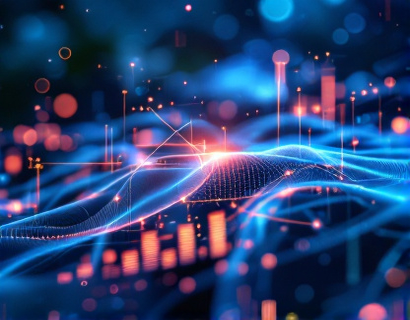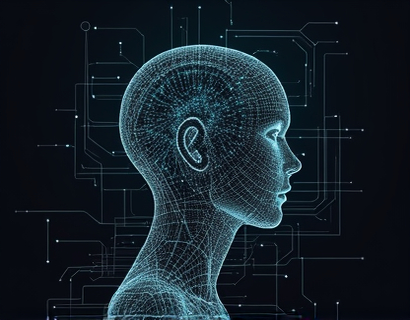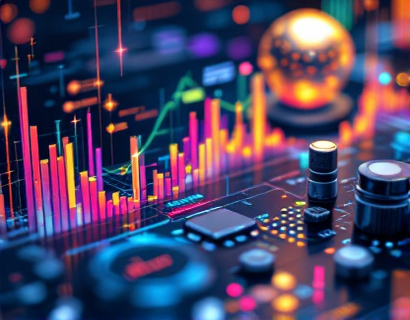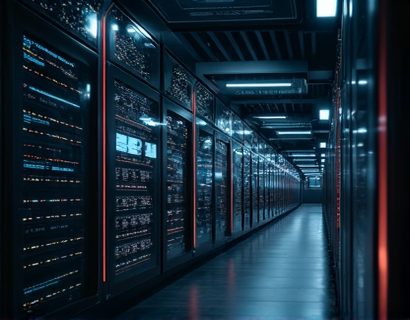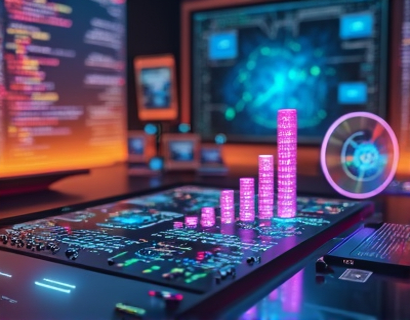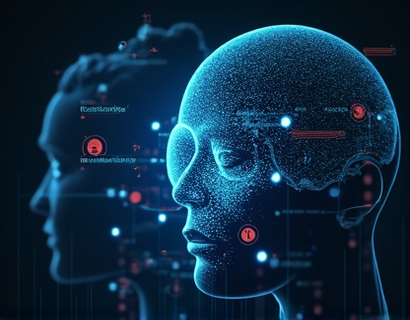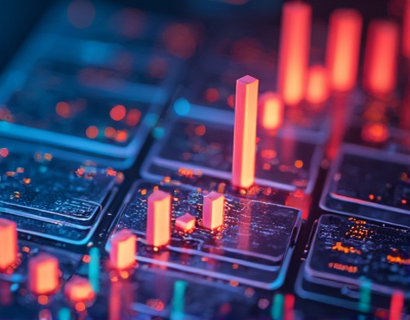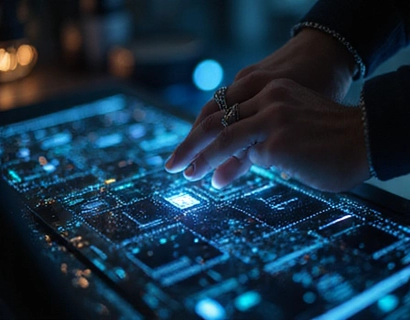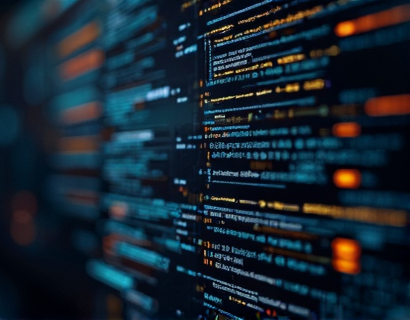AI and Crypto Convergence: Harnessing Intelligent Solutions for Next-Gen Blockchain Finance
The intersection of artificial intelligence (AI) and cryptocurrency is an exciting frontier that promises to revolutionize the way we think about finance and technology. This convergence, often referred to as AI-driven blockchain finance, leverages the strengths of both domains to create more efficient, secure, and innovative financial systems. As tech-savvy innovators and enthusiasts delve deeper into this space, it becomes increasingly clear that AI is not just a tool but a transformative force in the crypto ecosystem. This article aims to provide a comprehensive guide to this dynamic synergy, offering expert insights, valuable resources, and fostering a vibrant community for those interested in exploring the next generation of financial technologies.
Understanding the Basics
To fully appreciate the convergence of AI and cryptocurrency, it's essential to understand the fundamental concepts of both fields. Artificial intelligence, a branch of computer science, focuses on creating systems that can perform tasks requiring human intelligence, such as learning, reasoning, and problem-solving. Machine learning, a subset of AI, involves training algorithms to recognize patterns and make decisions based on data. On the other hand, cryptocurrency, particularly blockchain technology, is a decentralized digital ledger that records transactions across multiple computers in a way that ensures security, transparency, and immutability.
The combination of these two technologies opens up a myriad of possibilities. AI can enhance the functionality of blockchain by improving transaction processing, enhancing security measures, and optimizing smart contracts. Conversely, the decentralized and transparent nature of blockchain can provide AI systems with robust and trustworthy data sources, reducing the risk of data manipulation and increasing the reliability of AI-driven decisions.
Enhanced Transaction Processing
One of the most immediate benefits of AI in blockchain finance is the improvement in transaction processing speed and efficiency. Traditional blockchain networks, such as Bitcoin and Ethereum, face scalability issues due to their consensus mechanisms, which require significant computational power and time to validate transactions. AI can help mitigate these challenges by optimizing the consensus process.
For instance, machine learning algorithms can predict transaction patterns and adjust the resource allocation dynamically, ensuring that the network can handle peak loads more efficiently. Additionally, AI can be used to develop more efficient consensus algorithms, such as proof-of-stake (PoS) variants, which are less resource-intensive than proof-of-work (PoW) systems. By integrating AI into the consensus mechanism, blockchain networks can achieve faster transaction times and lower fees, making them more competitive with traditional financial systems.
Security Enhancements
Security is a paramount concern in the crypto space, and AI plays a crucial role in bolstering the defenses of blockchain networks. Traditional security measures, such as cryptographic hashing and digital signatures, are robust but not infallible. AI can enhance security by detecting and mitigating threats in real-time.
Anomaly detection algorithms can monitor network activity and identify unusual patterns that may indicate a security breach. For example, AI can detect suspicious transaction behaviors, such as unusual transaction volumes or patterns that deviate from the norm. By flagging these anomalies, AI systems can alert network administrators to take preventive measures, thereby reducing the risk of attacks.
Furthermore, AI can be used to improve the security of smart contracts. These self-executing contracts with the terms directly written into code are vulnerable to bugs and exploits. Machine learning models can analyze smart contract code to identify potential vulnerabilities before deployment. This proactive approach to security can significantly reduce the risk of exploits and enhance the overall trustworthiness of decentralized applications (dApps).
Optimized Smart Contracts
Smart contracts are a cornerstone of blockchain technology, enabling automated and trustless execution of agreements. However, the efficiency and performance of smart contracts can be suboptimal, leading to higher gas fees and slower execution times. AI can optimize smart contracts by streamlining their code and improving their execution efficiency.
AI-driven tools can analyze smart contract code to identify redundant or inefficient parts, suggesting optimizations that reduce the computational load. For example, these tools can recommend alternative functions or data structures that consume fewer resources without compromising functionality. Additionally, AI can assist in the deployment of smart contracts by predicting and mitigating potential bottlenecks, ensuring smoother and faster execution.
Another area where AI can add value is in the automation of contract management. AI can monitor the state of smart contracts in real-time, automatically triggering actions based on predefined conditions. This automation not only reduces the need for manual intervention but also minimizes the risk of human error, enhancing the reliability of decentralized applications.
Enhanced User Experience
The user experience (UX) in blockchain finance is often criticized for being complex and user-unfriendly. AI can play a significant role in improving UX by providing personalized and intuitive interactions. For instance, AI-powered chatbots and virtual assistants can guide users through the process of setting up wallets, executing transactions, and managing assets.
These AI-driven interfaces can learn from user behavior and preferences, offering tailored recommendations and simplifying complex processes. Natural language processing (NLP) techniques can enable users to interact with blockchain applications using natural language commands, making the technology more accessible to a broader audience. By reducing the learning curve and enhancing usability, AI can help democratize access to blockchain finance.
Predictive Analytics and Risk Management
AI's ability to process and analyze vast amounts of data makes it an invaluable tool for predictive analytics and risk management in the crypto space. Traders and investors can leverage AI-driven insights to make more informed decisions, identifying trends and patterns that may not be apparent through traditional analysis.
For example, machine learning models can analyze historical price data, market sentiment, and macroeconomic indicators to predict future price movements. These predictions can help traders optimize their strategies, manage risk, and maximize returns. Additionally, AI can assess the risk profile of different assets and portfolios, providing recommendations for diversification and risk mitigation.
In the context of decentralized finance (DeFi), AI can enhance credit scoring and lending processes. By analyzing a wide range of data points, including transaction history, social media activity, and other relevant factors, AI can assess the creditworthiness of users more accurately. This can lead to more inclusive and efficient lending systems, reducing the barriers to access for underserved communities.
Challenges and Considerations
While the potential benefits of AI in blockchain finance are substantial, there are also challenges and considerations that need to be addressed. One of the primary concerns is the ethical use of AI. Ensuring that AI systems are transparent, fair, and free from bias is crucial to maintaining trust in the crypto ecosystem. Developers must prioritize ethical AI practices, conducting regular audits and implementing robust governance mechanisms.
Another challenge is the integration of AI with existing blockchain infrastructure. Many blockchain platforms are still in the early stages of adoption, and integrating AI requires careful planning and execution. Compatibility issues, scalability concerns, and the need for standardization are all factors that must be considered to ensure seamless integration.
Privacy is also a significant concern. While AI can enhance security, it can also pose risks if not implemented correctly. For instance, AI-driven analysis of transaction data could potentially reveal sensitive information about users. It is essential to develop AI systems that respect user privacy and comply with data protection regulations.
Future Outlook
The convergence of AI and cryptocurrency is still in its infancy, and the future holds immense potential. As AI technologies continue to advance, we can expect even more innovative applications in the blockchain space. One area of interest is the development of AI-powered decentralized autonomous organizations (DAOs), which combine the autonomy of blockchain with the intelligence of AI to create self-governing entities.
Another exciting possibility is the integration of AI with quantum computing, which could revolutionize the way we process and secure data on the blockchain. Quantum AI could solve complex problems that are currently infeasible, leading to breakthroughs in cryptography, optimization, and other critical areas.
Moreover, the rise of Web3 and the metaverse presents new opportunities for AI and blockchain to converge. AI can enhance the immersive and interactive experiences in virtual environments, while blockchain can ensure the ownership and authenticity of digital assets. The synergy between these technologies has the potential to transform industries ranging from entertainment to education.
Conclusion
The intersection of AI and cryptocurrency represents a transformative force in the world of finance and technology. By leveraging the strengths of both domains, we can create more efficient, secure, and user-friendly financial systems. As the ecosystem continues to evolve, it is essential for tech enthusiasts, professionals, and policymakers to collaborate and address the challenges while harnessing the opportunities. The future of blockchain finance is bright, and AI is poised to play a pivotal role in shaping its trajectory.




